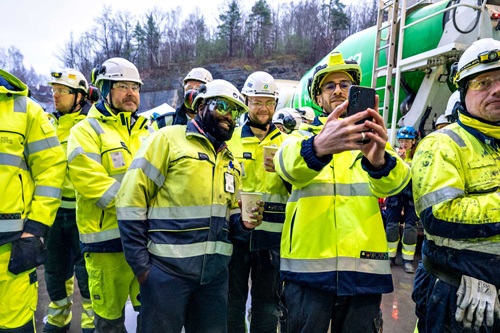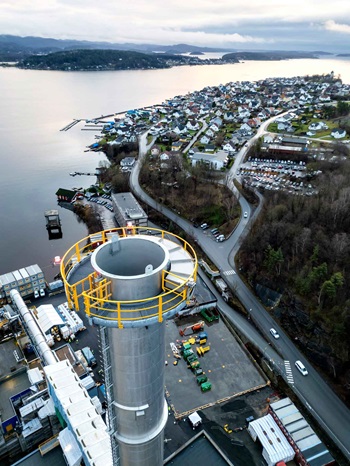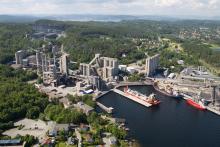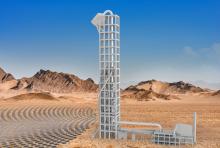
The project, part of the Norwegian government's Longship initiative, is the first industrial-scale capture effort in the cement industry worldwide. Once operational, 400,000 tonnes of CO₂ per year, equaling 50% of the plant's emissions, will be captured and transported by ship to an onshore terminal on the Norwegian west coast. From there, the liquefied CO₂ will be transported by pipeline to the storage site under the North Sea, where it will be permanently stored.

As part of the project, the carbon capture plant has been integrated into the current cement plant without disrupting the ongoing cement production. This results from 1.2 million hours of technical precision work by an on-site team of up to 400 employees and external partners.
“Mechanical completion” marks the point at which all major mechanical components have been installed, and the system is ready for testing. After mechanical completion, the project now enters the commissioning phase.
“We are very proud of this important achievement, which positions us as a leader in the global transition to a net-zero economy,” said Axel Conrads, chief technology officer of Heidelberg Materials. “The project's progress towards the start of the Brevik CCS plant is a testament to our engineering expertise and to the close collaboration between the project team in Brevik, the experts in our global Competence Center Cement, and our trusted partners for this first-of-its-kind application. With most modern training tools, we have laid the foundation for the next crucial step of commissioning the new equipment. We are looking forward to launching the plant into full operation.”
Brevik holds special significance for Heidelberg Materials as a pioneering project. Its progress is followed with great public interest. It has already attracted thousands of visitors worldwide, since the experiences and ‘lessons learnt’ from the CCS realisation and operation in Brevik will be valuable for both the cement industry and other process industries.

Giv Brantenberg, general manager of Heidelberg Materials Northern Europe, said: “The Brevik CCS project is a landmark achievement for Heidelberg Materials. As part of the Norwegian Longship program demonstrates not only cutting-edge technology but also the strength of the industrial-governmental partnership model. Ultimately, our customers across Europe will be empowered to lead the way and build a more sustainable future by incorporating our evoZero carbon-captured cement and concrete into their projects starting next year.”
Based on the expertise gained in Brevik over many years, Heidelberg Materials has already launched around a dozen other CCUS projects around the globe. The company is drawing on lessons learned in Norway to roll out carbon capture solutions at scale further. Suitable storage sites and the necessary infrastructure connecting the emission sources to these sites are critical factors. Similarly, follow-up projects depend on efficient approval, funding schemes, and public sector support.










